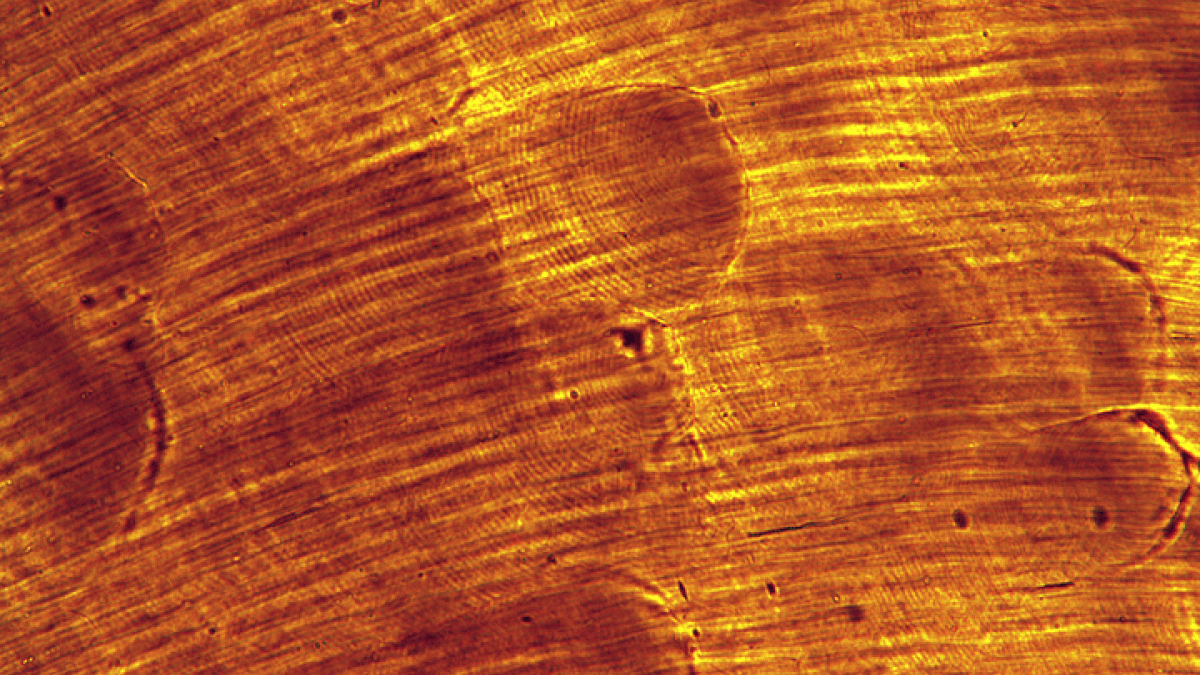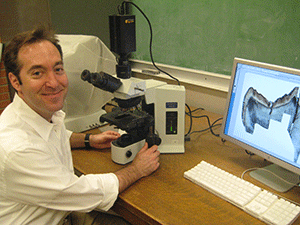ASU professor named AAAS Fellow

High-resolution image of the growth lines of a tooth — similar to growth rings of a tree. Much can be learned from understanding how an individual lived by studying their history through their teeth. Image courtesy of Gary Schwartz
Gary Schwartz, who has devoted his career to unlocking the mysteries of human's unique life history through examining how our teeth grow, has been named a fellow of the American Association for the Advancement of Science (AAAS).
Election as an AAAS Fellow is an honor bestowed upon AAAS members by their peers for their scientifically or socially distinguished efforts to advance science.
Schwartz was cited for his “distinguished contributions in the evolutionary history of primate and human growth and development as evidenced from developing tooth tissues.”
Over the past 20 years, Schwartz’s research has combined evolutionary, developmental, histological and 3-D imaging approaches applied to a range of living and extinct primates, as well as our fossil human ancestors, to probe how the growth of teeth and the timing of important dental developmental events illuminates the evolutionary foundations of our unique life history.
“The distinguishing characteristic of our species,” said Schwartz, “is our unique ‘life history’ or the pace at which we grow, mature, produce offspring and die. Amazingly, the overall timeline of a species' growth and development is preserved in the microscopic details of how our teeth grow and when they emerge into our mouths.”

Gary Schwartz
A research associate with the Institute of Human Origins and an associate professor in the School of Human Evolution and Social Change, Schwartz works collaboratively across many scientific disciplines to understand how, when, and why we “became human.”
When he received the notice, Schwartz said he was “bowled over. It is such an honor to have my work recognized by my peers, and I am looking forward to getting involved in the society.”
This year’s AAAS Fellows will be recognized on Feb. 18, 2017, at a special fellows forum at the annual meeting of the AAAS in Boston.
AAAS is the world’s largest general scientific society.
More Science and technology

Lucy's lasting legacy: Donald Johanson reflects on the discovery of a lifetime
Fifty years ago, in the dusty hills of Hadar, Ethiopia, a young paleoanthropologist, Donald Johanson, discovered what would…

ASU and Deca Technologies selected to lead $100M SHIELD USA project to strengthen U.S. semiconductor packaging capabilities
The National Institute of Standards and Technology — part of the U.S. Department of Commerce — announced today that it plans to…

From food crops to cancer clinics: Lessons in extermination resistance
Just as crop-devouring insects evolve to resist pesticides, cancer cells can increase their lethality by developing resistance to…